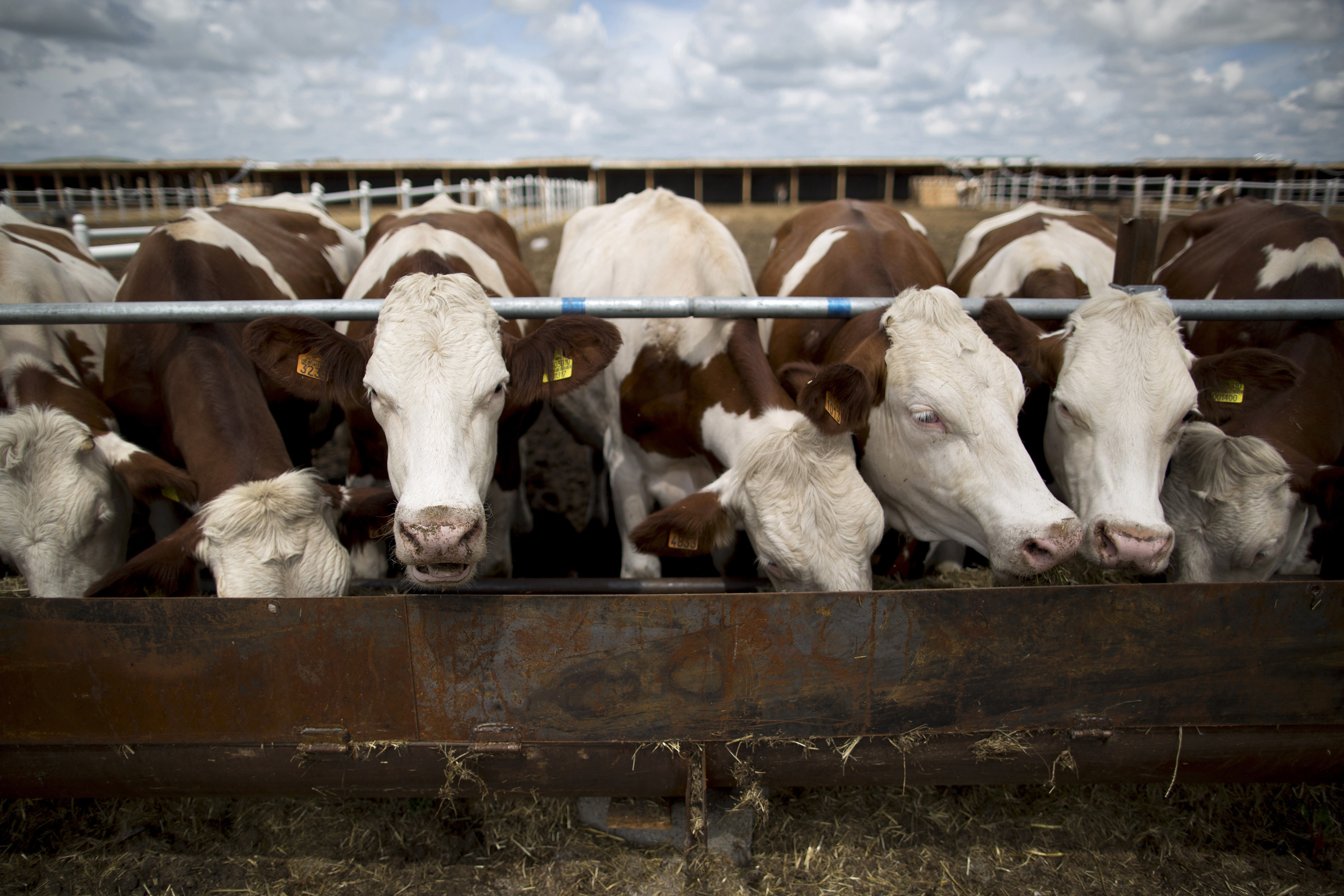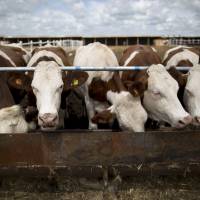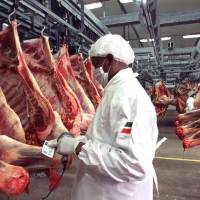What are the costs of the meat we eat — the hamburgers, pork chops and chicken breasts?
Not the price we pay for ground beef and so on, but the full costs of meats: the environmental and societal impacts, from birth to burger, and beyond. Some impacts of raising, slaughtering and eating beef come to mind quickly, while others are far less obvious.
This summer, while in the United States, I quickly gained a couple of kilograms. This happens every time I visit and spend a lot of time eating and drinking with friends and relatives. But it is also lifestyle related, which made me think about rising obesity in America.
Poor dietary habits, large portions and widespread acceptance of obesity contribute to the problem, as do sedentary lifestyles. And Americans drive almost everywhere.
The combination of fast foods, such as burgers, and car dependence leads to obesity, and other spinoff social and environmental costs.
Americans need cars to get around, and larger people need larger cars. Manufacturing bigger vehicles requires more aluminum, plastic, energy and water, to name just a few environmental costs. Larger, heavier vehicles consume more fuel, and yet more fuel when loaded with heavy people.
Heavier vehicles also take a greater toll on roads and bridges, which then need more maintenance, meaning more tax money must be spent.
As you can see, what we eat can have far-reaching consequences.
"The human appetite for animal flesh is a driving force behind virtually every major category of environmental damage now threatening the human future — deforestation, erosion, fresh-water scarcity, air and water pollution, climate change, biodiversity loss, social injustice, the destabilization of communities and the spread of disease," reported the 2004 July/August issue of World Watch Magazine.
Other authors have focused on the ethical issues that arise from killing animals and intensive meat production. "Most animals in these systems are made to lead miserable lives so that their muscle and fat can be made available to humans at the lowest possible cost," observed Robert Kanaly and others in a 2010 UNESCO publication titled "Energy Flow, Environment and Ethical Implications for Meat Production" (2010).
Right or wrong, Americans want meat. "The average American derives 67 percent of dietary protein from animal sources, compared with a worldwide average of 34 percent," according to a 2005 report titled "Public Health Implications of Meat Production and Consumption," lead-authored by Polly Walker.
Walker and her colleagues found that "Americans consume about 10 billion animals each year, not including fish, averaging, for a family of four, 120 chickens, four pigs and one cow."
With 10 billion farm animals killed annually, ethics certainly ought to be an issue, whatever each of us decides. But food ethics are notoriously polarizing, and there are plenty of other impacts of meat-eating that are worthy of serious concern.
Recognizing that much of the world, too, has a growing appetite for meat protein, here are some observations and anecdotes from World Watch and others that offer food for thought on the social and environmental impacts of meat production.
Deforestation, loss of biodiversity
Raising animals requires grass and grain, and increasingly we are feeding animals corn to fatten them more quickly. Both grass and grain take space, and space for agriculture often comes at the expense of forests, which host much of Earth's biological diversity. Eating more grain and less meat can help.
Fresh water
Livestock require vast amounts of water. "Humans are now taking half the available fresh water on the planet. If we break it down, we find that the heaviest water use is by the animals we raise for meat," stated World Watch.
For example, it takes 550 liters of water to produce enough flour for one loaf of bread in developing countries, but up to 7,000 liters of water to produce 100 grams of beef, according to a 2004 report, "Water — More Nutrition Per Drop."
Waste disposal
In the U.S., most animals are concentrated on giant livestock farms that house hundreds of thousands of pigs, chickens or cows, which produce massive amounts of waste. "These 'factory farms' generate more than 130 times the amount of waste that people do," according to the Natural Resources Defense Council in Washington.
Energy consumption
Preparing meat consumes staggering amounts of energy. "The cycle begins with growing the grain to feed the cattle, which requires a heavy input of petroleum-based agricultural chemicals. There's the fuel required to transport the cattle to slaughter, and then to market. Today, much of the world's meat is hauled thousands of miles. And then, after being refrigerated, it has to be cooked," noted World Watch.
Global warming
Greenhouse gases, such as carbon dioxide and methane, are produced in the process of raising animals, and the animals themselves emit gases during their digestion process. "Belching, flatulent livestock emit 16 percent of the world's annual production of methane, a powerful greenhouse gas," wrote Brian Halweil and Danielle Nierenberg in the 2004 edition of environmental book series "State of the World."
The Food and Agriculture Organization of the United Nations has also found that "at least 32,562 million tons of carbon dioxide equivalents or at least 51 percent of all (greenhouse gas) emissions are attributable to livestock production," noted Kanaly.
Food productivity
Kanaly has other eye-opening statistics as well. "The total U.S. livestock population consumed 250 million tons of grain in 2001 and this amount was more than seven times greater than the amount of grain consumed directly by the entire American population."
The U.S. Department of Agriculture reported in 2001, "Approximately 45 million tons of plant protein is fed to U.S. livestock to produce only 7.5 million tons of animal protein for consumption." That means about 6 kg of plant protein for each kilogram of animal protein.
Lifestyle disease
Most of us know about the link between meat fat and heart disease. Here's what author George Bernard Shaw had to say about meat and health.
"The average age (longevity) of a meat eater is 63. I am on the verge of 85 and still work as hard as ever. I have lived quite long enough and am trying to die; but I simply cannot do it. A single beefsteak would finish me; but I cannot bring myself to swallow it. I am oppressed with a dread of living forever. That is the only disadvantage of vegetarianism."
Few of us will change how or what we eat until our health or wallet takes a hit — a heart attack or rising meat prices, say. Still, it's worth knowing more about the impacts of meat, if only to be reminded that absolutely everything on the planet is connected. From belching cows to climate change, from overeating to rising taxes, what we eat shapes our planet and our future.
I don't eat much meat, but I'll be eating even lower on the food chain now.
Stephen Hesse is a professor in the Law Faculty of Chuo University and associate director of Chuo International Center. He can be reached at [email protected].




















With your current subscription plan you can comment on stories. However, before writing your first comment, please create a display name in the Profile section of your subscriber account page.